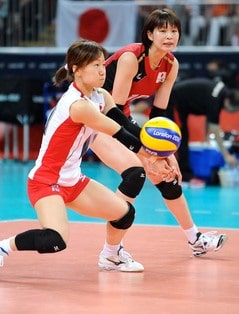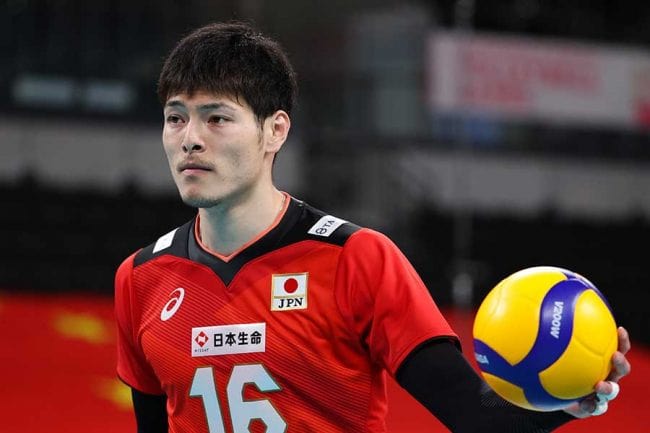
It has been announced that the Japanese national volleyball team’s nickname will be abolished, shocking fans and the entire sports world.
There are many questions surrounding why the longtime nickname was being retired and how this change will affect the players, fans, and the volleyball world as a whole.
In this article, we will analyze in detail the background behind the abolition of the nickname, the specific reasons, the reactions from fans and experts, and what path the Japanese volleyball team will take in the future.
Let’s take a look at what the nickname meant and what steps the Japanese national team should take towards building a new identity.
目次
- 1 The whole story behind the abolition of the Japanese volleyball team nickname
- 2 Towards a new era: Japan’s volleyball team after nickname abolishment
- 3 Analysis of the impact of the abolition of nicknames: Future predictions for the Japanese national volleyball team
- 4 Abolition of nicknames from the perspective of fans: Opinion collection and outlook
- 5 summary
The whole story behind the abolition of the Japanese volleyball team nickname
The abolition of the nickname for the Japanese volleyball team has sparked much debate and reaction.
Let’s take a deep dive into the reasons behind this important decision, the reactions from fans and experts, and how the removal of the nickname will affect the future of the Japanese national team.
Reason: Why was the nickname abolished?
The main reason for abolishing the nickname of the Japan Volleyball National Team is to revamp the team’s image and rebuild the brand strategy.
In the modern sports world, a team’s identity and brand image are extremely important, and the organization’s management chose to review nicknames as a way to strengthen these aspects.
In addition, as global competition intensifies, it was determined that a new nickname and a new image was necessary in order to gain more fans and increase our presence on the international stage.
Fan reaction: voices of support and concern
Following the announcement of the discontinuation of the nickname, there were various reactions from fans. Some fans have expressed support for the idea that a revamped team image could bring new energy to the team and lead to better performances.
However, many fans have a strong attachment to the nickname and have expressed anxiety and concern about the loss of identity and disruption of tradition due to its abolition.
This change could cause confusion and disappointment for fans who felt a bond with the team through the nickname.
Expert opinion: Impact of abolition of nickname on the Japanese national team
Sports industry experts say abolishing the nickname will affect the Japanese national team on multiple levels.
On the positive side, a new nickname could bring a fresh brand image to the team and help increase its visibility in a global perspective.
On the other hand, it is also expected that temporary confusion and changes in the fan base may occur as the relationship with fans and team identity that has been built over many years is shaken.
Experts emphasize that in order to overcome this period of transition, it is important for organizations to strengthen communication with fans and clearly communicate the meaning and vision of the new nickname.
The discontinuation of the nickname marks a new milestone for the Japan Volleyball National Team.
All eyes are on how the upcoming changes will affect the relationship between teams and fans, as well as the team’s international success.

Towards a new era: Japan’s volleyball team after nickname abolishment
The abolition of the Japanese volleyball team’s nickname is more than just a name change.
This signals an opportunity for the team to step into a new era, forge a new identity and rebuild its relationship with fans.
Below, we explore the key changes in Japan’s national team since the nickname was abolished.
Searching for a new identity
The decision to abolish the nickname provides an opportunity for the Japan Volleyball National Team to seek a new identity.
This symbolizes the team’s commitment to adapting to the modern sporting environment and evolving toward the future, without being bound by past traditions and achievements.
Building a new identity involves a process of rethinking the team’s values, goals, and message to fans at home and abroad.
At this stage, the stories of individual players and the team as a whole play an important role and need to be expressed together through a new nickname and brand image.
Building new relationships between players and fans
Another important aspect after the abolition of nicknames is the creation of a new relationship between players and fans.
Nicknames were a component of the sense of familiarity and unity fans felt with their teams, so their abolition would require a redefinition of relationships.
In building this new relationship, more open and interactive communication will be important, and the use of digital media such as SNS will be key.
By sharing the players’ daily lives, training sessions, and post-game thoughts, fans can feel a deeper emotional connection to the individual players and the team as a whole.
In addition, by proactively incorporating fan opinions regarding the new nickname and identity, we will be able to encourage collaboration with fans and create a team that grows together.
Retiring the nickname marks a new beginning for the Japan National Volleyball Team and is an opportunity to make positive changes for both the team and its fans.
Exploring a new identity and rebuilding the relationship between players and fans will be important steps for the Japan National Volleyball National Team to achieve success both domestically and internationally, and to evolve into a team that is loved by even more people. Probably.

Analysis of the impact of the abolition of nicknames: Future predictions for the Japanese national volleyball team
The abolition of the Japanese volleyball team’s nickname will have an impact on many aspects, and will serve as an opportunity to redraw the team’s vision for the future.
Here, we analyze the impact of the abolition of nicknames on relations with the media and on rebuilding the brand image in international matches.
Relations with the media: changes in reporting
The abolition of the Japanese volleyball team’s nickname will likely lead to changes in the way the media covers the team.
The introduction of new nicknames and identities will force changes in the language and vocabulary with which the media presents the team.
This means a more conscious approach is required, not only in coverage of team news and performance, but also in feature articles and commentary content.
Media is the primary vehicle for communicating your new brand image to your audience and readers, and its role is essential in increasing your team’s visibility and popularity.
Changing the nickname will give us the opportunity to rethink our media strategy and reach a wider audience by communicating the story of our team and the personalities of our players more effectively.
Influence on international matches: Rebuilding the brand image of the Japanese national team
The abolition of the nickname will also have a major impact on rebuilding the brand image of the Japanese national team in international matches. In the world of international sports, where competition is fierce, a team’s identity is an important element of its competitiveness.
The new identity established by abolishing the nickname provides an opportunity to clearly demonstrate to international fans and competing countries what values the Japanese national team holds and what goals it pursues. To do.
This will have the effect of strengthening the position of the Japanese national team, not only in terms of performance at international competitions, but also in sports diplomacy and international sports marketing.
Through the new nickname and brand image, the Japanese national team is expected to increase its presence within the global sports community and gain more international fans.
The abolition of the nickname marks an important turning point for the Japan National Volleyball Team and will play a central role in shaping the team’s future.
Rebuilding relationships with the media and strengthening the brand’s image in international competition are important steps for the team to succeed in the new era.
Through these changes, the Japanese national team will be able to increase its recognition both domestically and internationally and build a stronger fan base.

Abolition of nicknames from the perspective of fans: Opinion collection and outlook
There are various opinions flying around among fans regarding the abolishment of the nickname of the Japanese national volleyball team.
The attachment that many fans have cultivated over the years is intertwined with expectations for new changes.
Here, we will collect opinions from fans based on online reactions and explore their expectations and suggestions for abolishing the nickname.
On SNS and other online platforms, there are various reactions to the abolishment of the Japanese volleyball team’s nickname.
Some fans are hoping that the team will use the nickname as an opportunity to establish a new identity and renew its brand image both domestically and internationally.
These fans embrace change and see it as a step toward greater success for their team.
On the other hand, some fans who are deeply attached to the nickname have voiced concerns about the loss of tradition and identity.
Some fans, especially those who have supported the team for many years, have expressed opposition to the change and even started petitions to keep the nickname.
Expectations and suggestions for abolishing nicknames
Based on fan feedback, the hope for the nickname elimination is that the team will develop a more inclusive and positive identity through the new nickname.
Many hope that the new nickname will reflect the team’s dynamism and diversity, making it more appealing to fans.
Fans also have suggestions for deepening their relationship with the team, such as incorporating fan input into the selection process for new nicknames and sharing stories and meanings associated with nicknames to strengthen connections with fans. It is proposed that.
Based on this collection of opinions and outlook, it can be seen that while fans’ reactions to the abolishment of the nickname are not uniform, many fans want to be actively involved in the future of the team.
The challenge going forward will be to view the change that will result from the abolition of the nickname as an opportunity for the team and fans to move forward together, and to use it as a step towards building a new era of Japan’s national volleyball team.

summary
The abolition of the Japan National Volleyball Team’s nickname was an important event that had a huge impact on the team, fans, and the sports world as a whole.
This decision highlighted various challenges to rebuilding the team’s identity, forging new relationships with fans, changing relationships with the media, and rebuilding the brand’s image in the international game.
- In the search for a new identity , it will be important to consider how the team will express itself through its new nickname and connect with fans both domestically and internationally.
- Regarding relationships with fans , online reactions and expectations and suggestions for abolishing the nickname demonstrated the importance of fans being actively involved in and continuing to support the team’s changes.
- In relation to the media , attention will be focused on how changes in coverage will affect the team’s visibility and popularity, and strategies will be needed to effectively communicate the new identity through the media.
- Regarding the impact on international matches , an important point will be how the new nickname and identity will strengthen the positioning of the Japanese national team in international competition.
Through these analyses, we believe that the abolition of the nickname is a new beginning for the Japan Volleyball National Team, and an important step for the team to achieve greater success both domestically and internationally, and to evolve into a team that is loved by many people. has become clear.
Open, two-way communication will be key in the process of rebuilding relationships and establishing a new identity with fans, media, and the international community.
By not being afraid of change and seeing it as an opportunity for growth and development, Japan’s national volleyball team can aim for new heights.





